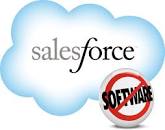White Castle to deploy voice-enabled digital signage in US
SOURCE: HTTPS://WWW.VERDICTFOODSERVICE.COM/
OCT 04, 2023
Salesforce Showcases the Power of Its Conversational Cloud Approach
SOURCE: OPUSRESEARCH.NET
APR 08, 2022

Salesforce, whose origin dates back to the earliest days of Software as a Service (SaaS), has long represented the prototype (or prototypes) of a Conversational Cloud that integrates its own core offerings with products and services of selected third parties. The most recent case in point is this week’s announcement of Service and Marketing Cloud features and functions that, among other things, “employ AI-powered conversational intelligence” in the name of improving customer experience and agent productivity.
The announcement may have been triggered, in part, by a slew of publicity for fellow hyperscalers emanating from the Enterprise Connect Conference in Orlando two weeks ago. Examples are enumerated by Scott Baker in this post. They include Google’s U-turn surrounding its Contact Center AI (CCAI) by positioning it as a complete “platform” (in conjunction with Ujet and, yes, Salesforce) and Amazon Connect offering demand forecasting and agent scheduling based on its own machine learning algorithm.
The announcements gave top billing to the Salesforce/Amazon connection surrounding AWS Contact Lens. It is a relationship that Opus Research highlighted in August 2020 when we took note Salesforce’s “Amazon Connect Connection” to highlight how Cloud giants (now called “hyperscalers”) would make it easy for companies to incorporate automated speech recognition, speech analytics and “conversational AI” into their contact center workflows and IT infrastructures. This weeks announcement validates the uptake of this offer.
Other Service Cloud Voice telephony partners include Google Cloud and Genesys, dramatizing how Salesforce will continue to give its enterprise customers many choices in how they embrace third-party AI-powered services through Service Cloud Voice. To clarify, both Google Cloud and Genesys will introduce telephony connectors that integrate phone and customer data, automate call transcriptions and notes and enable agents to receive real-time suggestions, while they’re on a customer call.
Not mentioned in the announcements are the great strides Salesforce has made surrounding Einstein and its ability to help its enterprise customers create and administer Intelligent Assistants. It has come a long way since its introduction in 2016. Yet it has been true to its original charter of democratizing AI for Salesforce customers. Among its capabilities is a drag-and-drop Bot builder to support conversations across multiple channels. In addition Service Cloud Einstein adds a number of intelligence and analytics features to assist both live and virtual agents, such as Next Best Action, Case Classification and Case Wrap. You will be able to learn more about these features and functions when Opus Research releases the 2022 edition of our Enterprise Intelligent Assistant Intelliview.
LATEST NEWS
WHAT'S TRENDING


Data Science
5 Imaginative Data Science Projects That Can Make Your Portfolio Stand Out
OCT 05, 2022

SOURCE: HTTPS://WWW.VERDICTFOODSERVICE.COM/
OCT 04, 2023
SOURCE: HTTPS://RESEARCH.AIMULTIPLE.COM/
JUL 12, 2023
SOURCE: HTTPS://RESEARCH.AIMULTIPLE.COM/
JUL 11, 2023
SOURCE: TECHCRUNCH.COM
OCT 27, 2022
SOURCE: THEHINDU.COM
OCT 16, 2022